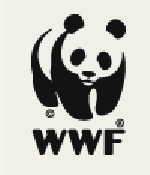WWF, the world’s leading conservation organization, seeks a Country Representative for its office based in Kathmandu, Nepal.
Founded in 1961, WWF is the world’s largest non-governmental conservation organization, with 6,500 staff operating in more than 100 countries, with the support of six million members. WWF started working in Nepal in 1967 with a rhino conservation program in Chitwan, moving on from localized efforts in the conservation of a single species in the 1960s to a new horizon of landscape level conservation encompassing national, regional and global scales of complexity in the early 2000s. WWF Nepal has, over the last ten years, mobilized over $75 million to support conservation and sustainable development initiatives in Nepal.
The Opportunity:
To lead one of the most progressive conservation organizations in Nepal with a 100+ member team and impact-driven programs in its conservation landscapes.
The Role:
The Qualifications:
Interested applicants are requested to download the application form and send the same with an application letter to the email address hr@wwfnepal.org.
Please mention the position you are applying for as the subject. Emails without an application letter and completed application form will not be entertained. Only shortlisted candidates will be informed. Detailed TOR for the mentioned position can be downloaded.
This Job is expired. The Company is no longer accepting applications for this position.
WWF is the world’s leading independent conservation organization originated from Switzerland in 1961 and currently running in more than 100 countries across 6 continents. The program started from conservation of wildlife to broader concept of building future where humans can live in harmony with nature. WWF has created 1,480 ecoregions that categorize the world into its natural ecosystems. Nepal with Bhutan, northeast India, southeast Tibet and northern Myanmar, falls under the Eastern Himalaya region housing the threatened species Snow Leopards, Bengal Tigers and One-horned Rhinos.
It was in 1967, WWF initiated WWF Nepal with a rhino conservation program in Chitwan. To keep up with the evolving face of conservation and environmental movement, WWF Nepal’s focus progressed from its localized efforts in conservation of single species in 1960s, integrated conservation and development approach in 1990s, to a new horizon of landscape level conservation encompassing national, regional and global scales of complexity in early 2000s.
